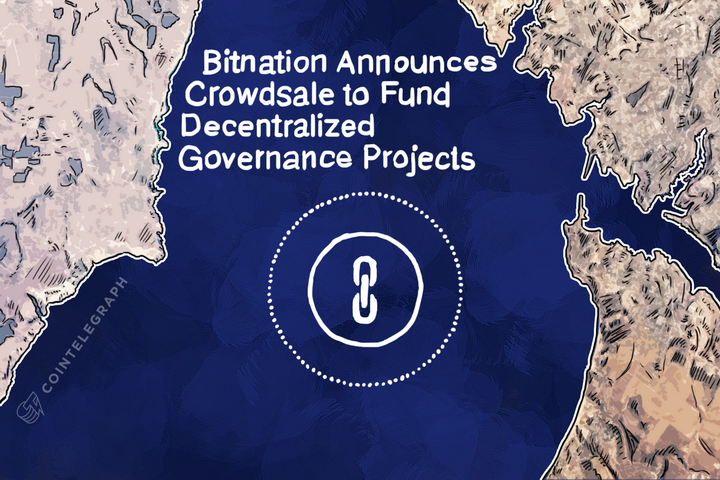When people speak of “taking on the state,” it’s usually in the context of resistance to a rule or to some kind of display of force.
Bitnation is taking on the state in a much different way: It’s trying to compete head-on by offering the same basic benefits a modern nation-state would, but Bitnation’s primary technology is a blockchain rather than a border.
Participation in Bitnation’s revenue-generating activity is also voluntary (unlike paying taxes, for example), and that revenue-generation is about to get started in October.
On Monday, Bitnation announced on its blog that it would be holding a crowdsale of cryptoequity, scheduled to begin October 10 and last for three months. Each unit of equity, a token known as XBN, will be issued at an initial exchange rate of 1000 XBN per 1 BTC, and that price will scale up as development milestones are reached.
This crowdsale will represent one-fifth of all XBN that will be released. Here is how the total cryptoequity’s issuance will break down, according to Bitnation’s website:
- 15% of the equity will be sold in a Series A offering within 8-12 months after the initial crowdsale, at least 5% being placed with private investors
- 15% will be sold in a Series B 20-30 months after the initial crowdsale, with 10% placed privately
- 30% retained for Founders/Employees
- 20% retained for Ambassadors and Advisers

Bitnation’s Work
Bitnation then plans to use the cryptoequity it raises to fund a variety of blockchain-based services — from issuing IDs to resolving disputes to issuing marriage licenses to registering land ownership.
You know, all the services a modern government provides. The difference is Bitnation will be decentralized, will be borderless, and will not demand participation from anyone.
“It caters for the same governance services to everyone, regardless if they’re based in the Potomac or the Eufrat — the country of birth, or residence is not a factor in their ability to achieve efficient governance,” the Monday blog post reads. “In addition, Bitnation is developed all using an open-source platform that anyone can share and fork to create their own Bitnation.”
That’s incredibly ambitious, but it is a problem that much of the world needs to solve.
Bitnation Founder and CEO Susanne Tarkowski Tempelhof wrote about cryptoequity and Bitnation’s plans in a July piece for Cointelegraph. She noted that a roadside fruit vendor might be operating illegally in a country such as Indonesia, but that’s a necessary risk this person has to take when he/she has little access to capital or any way to guarantee returns for investors.

- Susanne Tarkowski Tempelhof
“In almost all jurisdictions, incorporating companies tends to be a tedious bureaucratic process. Afterwards, once the incorporation is done, you’ll be subject to both taxes and regulations which will limit your ability to successfully grow your company. Instead, imagine for a second if you could start a company without all of that burdensome government interference?
“Well, thanks to the blockchain technology — i.e. its function as a cryptographically secured, distributed public ledger — that’s now possible. Essentially you start a “coin,” let’s call it mycryptocompany.com — and then you decide how many individual coins you want — 100, 1000, 10 million, etc. Through registering a smart contract on the blockchain you then attach an equity stake of whatever commercial activity mycryptocompany.com intends to do — whether it’s building apps or selling cupcakes.”
Bitnation points out that XBN is not a currency, though, but a share in the Bitnation organization. “XBN represent BITNATION’s corporate equity — just like if you owned equity shares in a LLC — which pay dividends on the corporate profit,” the Bitnation FAQ reads. “However, BITNATION uses the Blockchain technology to create and distribute equity in a similar way to Bitcoin and other cryptocurrencies.”
Did you enjoy this article? You may also be interested in reading these ones:


